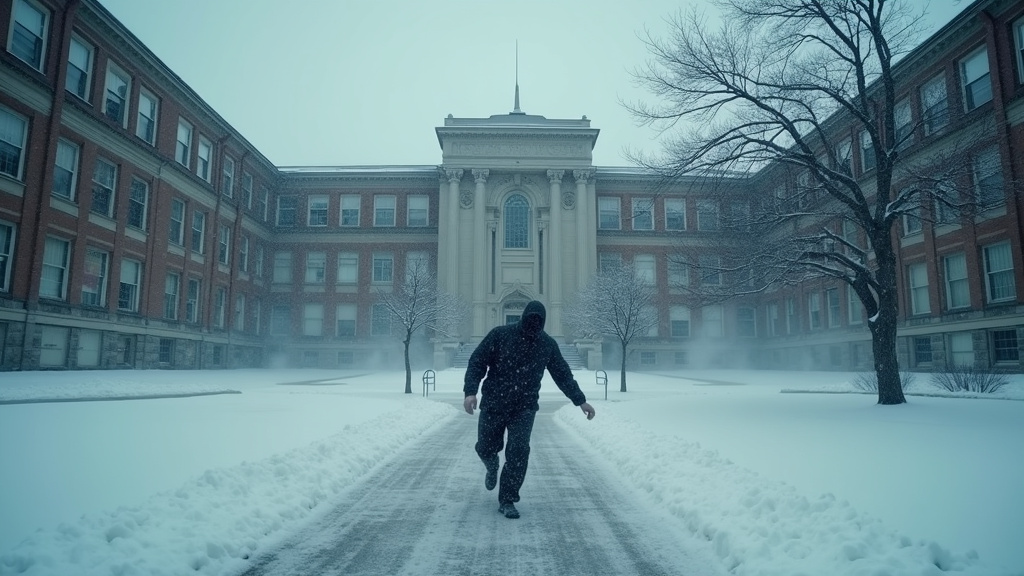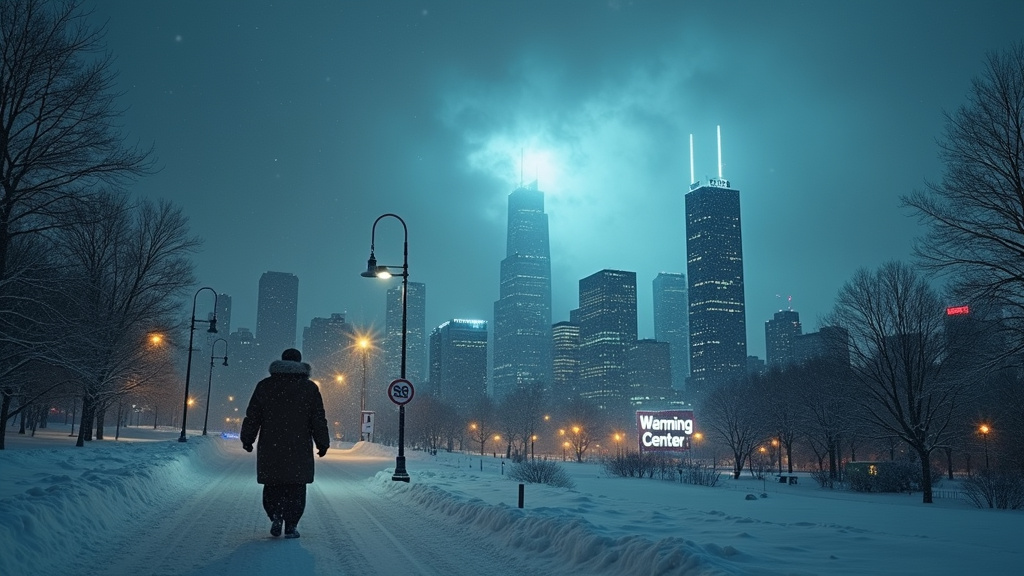CHICAGO – Over 350,000 residents across several prominent North Side neighborhoods in Chicago are grappling with an unexpected and potentially lengthy water service disruption, triggered by an immediate, emergency shutdown of a primary water transmission line. The drastic measure was implemented by the City of Chicago Department of Water Management following the detection of a significant and rapidly worsening failure within a vital 80-inch diameter pipe.
The affected areas include the densely populated neighborhoods of Lincoln Park, Lakeview, Uptown, and Edgewater. City officials have indicated that the interruption could persist for an estimated 24 to 48 hours as crews work diligently to assess the extent of the damage and commence critical emergency repairs on the aging infrastructure.
Cause of the Disruption
The emergency was initiated after sophisticated monitoring systems registered alarming data indicating a critical failure within a major water transmission line. The line, a substantial 80-inch diameter pipe, is a cornerstone of the North Side’s water supply network. The detected failure was characterized by authorities as both “significant” and “rapidly worsening,” necessitating the urgent shutdown to prevent potentially catastrophic outcomes, including uncontrolled water main breaks that could cause widespread damage and further complicate repairs. The City of Chicago Department of Water Management made the difficult decision to order the immediate closure of the line to isolate the compromised section.
Affected Areas and Estimated Impact
The emergency water shutoff directly impacts a wide swathe of Chicago’s North Side. Residents in Lincoln Park, Lakeview, Uptown, and Edgewater are experiencing little to no water pressure, or complete loss of service. The City’s estimate places the number of affected residents at over 350,000. This large-scale disruption underscores the vital role this specific transmission line plays in the daily lives of hundreds of thousands of Chicagoans.
The estimated timeframe for service restoration, ranging from 24 to 48 hours, is dependent on the complexity of the assessment and the challenges encountered during the emergency repair process. Authorities caution that this is an initial estimate and could be subject to revision depending on site conditions.
City’s Response and Support Measures
In response to the crisis, Chicago Mayor Jane Smith held a press conference this afternoon to address the public and outline the city’s immediate steps. Mayor Smith acknowledged the significant inconvenience to affected residents and emphasized the necessity of the emergency measure for public safety and infrastructure preservation.
During the press conference, Mayor Smith urged residents in unaffected areas of the city to practice water conservation to help maintain system pressure and stability while the repair work is underway. Furthermore, she announced the rapid setup of multiple potable water distribution sites across the impacted zones to provide essential resources to residents without service. The locations of these sites are being communicated through official city channels, including the City of Chicago website and social media.
Precautionary Boil Water Advisory
Adding a layer of safety, a citywide boil water advisory has been issued as a precautionary measure. While the emergency shutoff primarily affects specific North Side neighborhoods, the advisory covers the entire city out of an abundance of caution. This measure is standard protocol during significant water system events to mitigate any potential risk, however small, of contamination. Residents, especially those whose service was interrupted or experienced significant pressure drops, are advised to boil water for at least one minute before consumption or use in food preparation.
Looking Ahead
Crews from the City of Chicago Department of Water Management are actively on-site at the location of the 80-inch pipe failure to assess the damage and mobilize necessary equipment for emergency repairs. The process of repairing such a large and critical piece of infrastructure is complex and labor-intensive. The city is prioritizing the restoration of service but stresses that safety and thoroughness are paramount.
Residents in the impacted neighborhoods are advised to stay informed through official city communications regarding the status of repairs, updates on water distribution sites, and guidance related to the boil water advisory. The coming 24 to 48 hours will be critical as engineers and work crews race against time to restore essential water service to over 350,000 Chicagoans.











